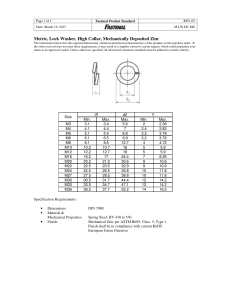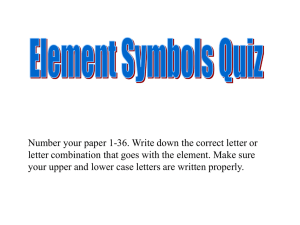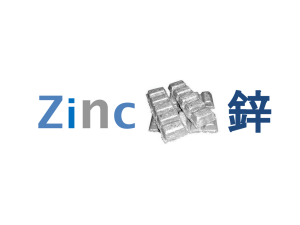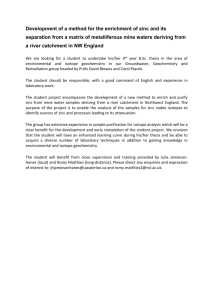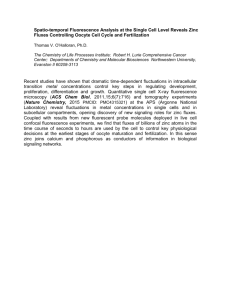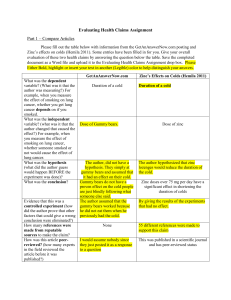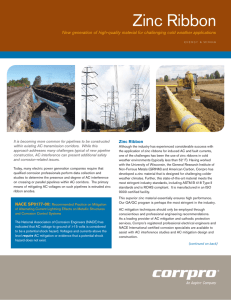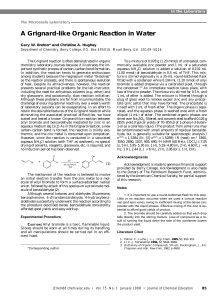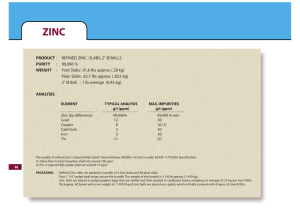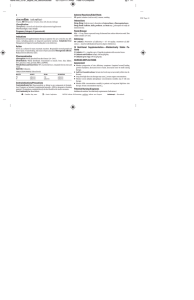Metals and acids
advertisement
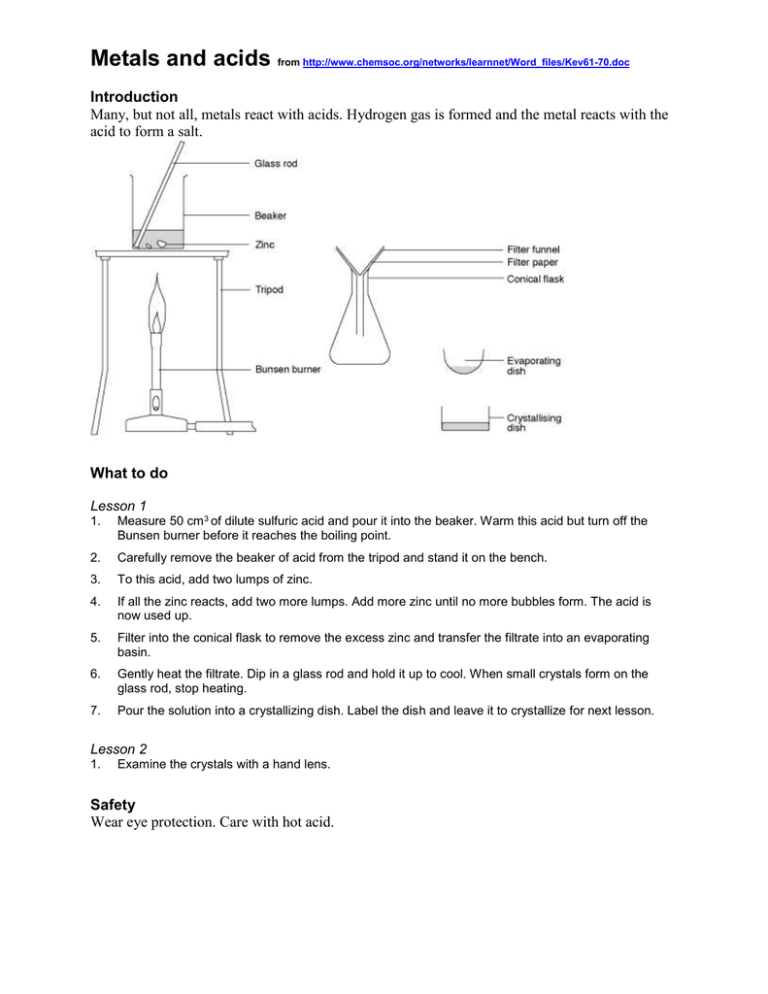
Metals and acids from http://www.chemsoc.org/networks/learnnet/Word_files/Kev61-70.doc Introduction Many, but not all, metals react with acids. Hydrogen gas is formed and the metal reacts with the acid to form a salt. What to do Lesson 1 1. Measure 50 cm3 of dilute sulfuric acid and pour it into the beaker. Warm this acid but turn off the Bunsen burner before it reaches the boiling point. 2. Carefully remove the beaker of acid from the tripod and stand it on the bench. 3. To this acid, add two lumps of zinc. 4. If all the zinc reacts, add two more lumps. Add more zinc until no more bubbles form. The acid is now used up. 5. Filter into the conical flask to remove the excess zinc and transfer the filtrate into an evaporating basin. 6. Gently heat the filtrate. Dip in a glass rod and hold it up to cool. When small crystals form on the glass rod, stop heating. 7. Pour the solution into a crystallizing dish. Label the dish and leave it to crystallize for next lesson. Lesson 2 1. Examine the crystals with a hand lens. Safety Wear eye protection. Care with hot acid. Questions 1. Write a word equation for the reaction between zinc and sulfuric acid. 2. Write word equations for the reactions of: (a) zinc and hydrochloric acid. (b) magnesium and sulfuric acid. 3. Write equations for these three reactions using chemical formulas. Home
